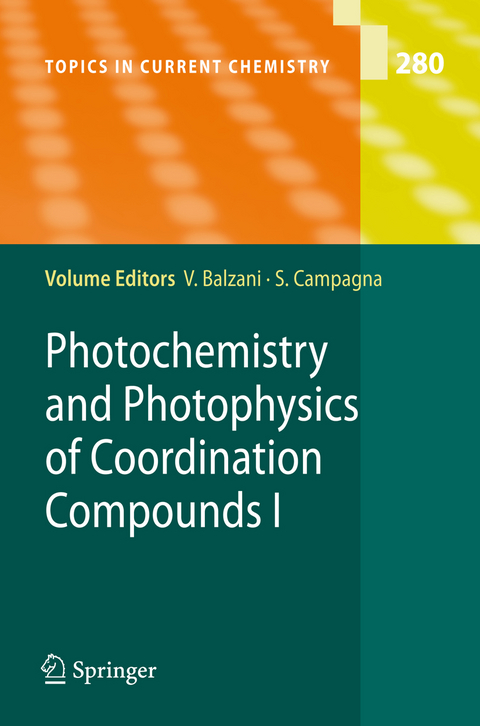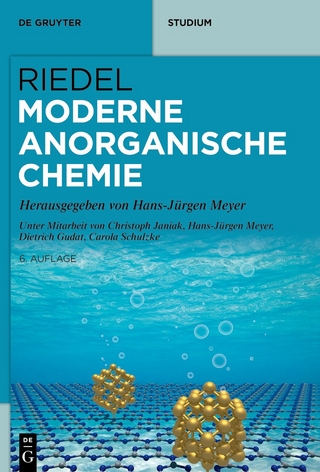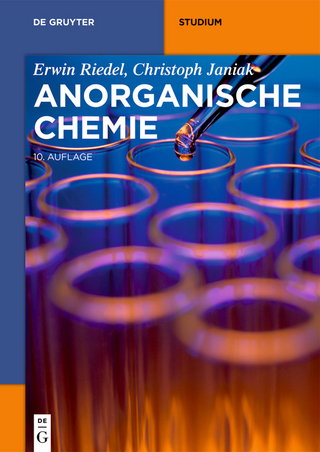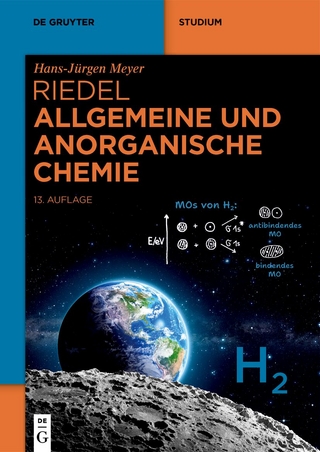
Photochemistry and Photophysics of Coordination Compounds I
Springer Berlin (Verlag)
978-3-642-09238-1 (ISBN)
Photochemistry (a term that broadly speaking includes photophysics) is abranchofmodernsciencethatdealswiththeinteractionoflightwithmatter and lies at the crossroadsof chemistry, physics, and biology. However, before being a branch of modern science, photochemistry was (and still is today), an extremely important natural phenomenon. When God said: "Let there be light", photochemistry began to operate, helping God to create the world as wenowknowit.Itislikelythatphotochemistrywasthesparkfortheoriginof life on Earth and played a fundamental role in the evolution of life. Through the photosynthetic process that takes place in green plants, photochemistry is responsible for the maintenance of all living organisms. In the geological past photochemistry caused the accumulation of the deposits of coal, oil, and naturalgasthat wenowuseasfuels.Photochemistryisinvolved inthecontrol ofozoneinthestratosphereandinagreatnumber ofenvironmentalprocesses thatoccurintheatmosphere,inthesea,andonthesoil.Photochemistryisthe essenceoftheprocessofvisionandcausesavarietyofbehavioralresponsesin living organisms. Photochemistry as a science is quite young; we only need to go back less than one century to ?nd its early pioneer [1]. The concept of coordination compounds is also relatively young; it was established in 1892, when Alfred Werner conceived his theory of metal complexes [2]. Since then, the terms coordination compound and metal complex have been used as synonyms, even if in the last 30 years, coordination chemistry has extended its scope to the binding ofall kinds of substrates [3, 4].
Vincenzo Balzani, born in 1936, received his Laurea in 1960. Since 1973 he is full professor of chemistry in Bologna, Italy. His research interests are molecular-level devices and machines, nanotechnology, supramolecular chemistry, photochemistry, -physics, -catalysis, electron transfer reactions, luminescent sensors, and solar energy conversion.
Photochemistry and Photophysics of Coordination Compounds: Overview and General Concepts.- Photochemistry and Photophysics of Coordination Compounds: Chromium.- Photochemistry and Photophysics of Coordination Compounds: Copper.- Photochemistry and Photophysics of Coordination Compounds: Ruthenium.- Photochemistry and Photophysics of Coordination Compounds: Rhodium.
From the reviews:
"Photochemistry and Photo physics of Coordination Compounds consists of chapters on individual elements ... . The authors have taken especially good care in presenting the questions to be addressed, the experiments undertaken to answer them, the results, and the subsequent questions raised, all with useful pictorial detail. ... This volume is required reading for inorganic photochemists, and new entrants to the field will find themselves brought up to date surprisingly swiftly. It is a highly recommended addition to the collections of comprehensive science libraries." (Patrick E. Hoggard, Journal of the American Chemical Society, Vol. 130 (6), 2008
| Erscheint lt. Verlag | 25.11.2010 |
|---|---|
| Reihe/Serie | Topics in Current Chemistry |
| Zusatzinfo | XIV, 273 p. |
| Verlagsort | Berlin |
| Sprache | englisch |
| Maße | 155 x 235 mm |
| Gewicht | 439 g |
| Themenwelt | Naturwissenschaften ► Chemie ► Anorganische Chemie |
| Naturwissenschaften ► Chemie ► Physikalische Chemie | |
| Schlagworte | Coordination Compounds • Inorganic Chemistry • photochemistry • photophysics • Physical Chemistry |
| ISBN-10 | 3-642-09238-1 / 3642092381 |
| ISBN-13 | 978-3-642-09238-1 / 9783642092381 |
| Zustand | Neuware |
| Haben Sie eine Frage zum Produkt? |
aus dem Bereich


